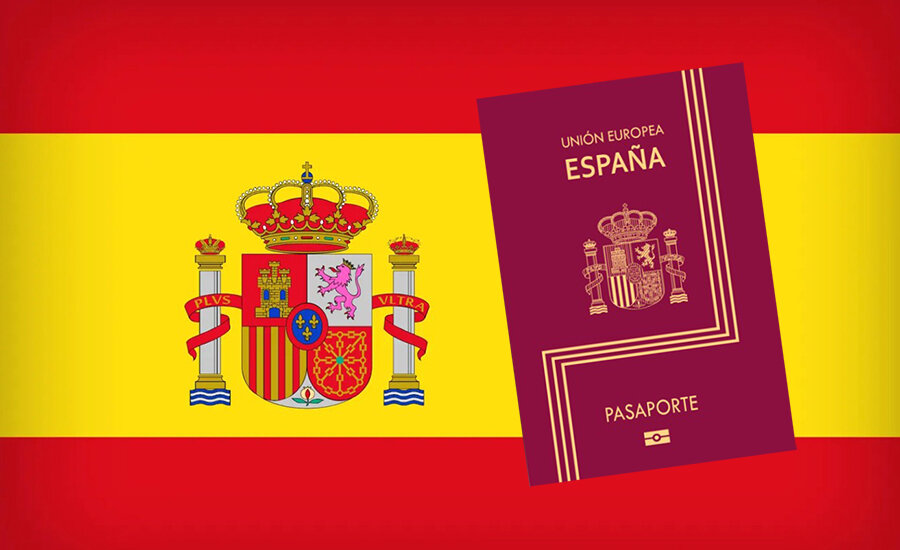read also

In March 2025, Spain intends to begin the process of annulling passports for foreigners who violate legal obligations, reports the Euro Weekly News portal, citing data from the country's Ministry of Justice. In some cases, citizenship may be restored if the government grants approval for the procedure.
New Rules
People who have obtained Spanish citizenship other than by birthright may lose their passports. The grounds for revocation include:
Using a foreign nationality, which they were required to renounce, for more than three years after naturalization;
Voluntarily joining the armed forces or taking a political position in another country against a direct prohibition from the Spanish government;
Obtaining Spanish citizenship fraudulently, through concealment of information or falsification—these facts must be established and proven in court.
There is a possibility of reinstating citizenship, but under strict conditions. Applicants must be legal residents of Spain, although exceptions are made for emigrants and their children, and in some cases, the Minister of Justice may waive this requirement. The applicant must submit an official request to the Civil Registry. If citizenship was revoked due to violations mentioned above, government approval will be required for reinstatement.
Authorities state that changes to Spanish nationality law reflect efforts to protect national security and regulate immigration policy. Previously, the rules were quite lenient. Even undocumented foreigners were given numerous opportunities to legalize their status, which contributed to a massive influx of migrants into Spain. Government officials explained that such policies were intended to help develop the country's economy and address labor shortages.
From January to November 2024, 54,000 cases of illegal entry into Spain were recorded, marking a 15.8% increase compared to 2023. Of these, 41,400 migrants arrived on the Canary Islands—the most popular route for irregular migrants from Mali, Morocco, and Senegal. This figure surpassed the 2023 record of 39,910. In December and January, the number of migrants on the islands suddenly dropped. It remains unclear how the situation will develop further.
Local residents oppose the rising number of arriving migrants. In October, demonstrations took place in Las Palmas. Islanders argue that they do not need immigrants for labor and that more jobs should be available for the local population, which risks losing its identity due to the large influx of foreigners.
According to Spain's National Statistics Institute, in 2023, a total of 240,208 foreigners were granted Spanish citizenship, a 32.3% increase compared to 2022. Most applicants were from Morocco, Syria, and Colombia. However, in the first nine months of 2024, the number of citizenship rejections unexpectedly rose to 14,834—twice as many as in 2023 (7,399). The increase in applications is believed to be one of the reasons for the growing number of denials. In spring 2025, Spain is expected to introduce broader policy changes, including stricter regulations on foreign real estate ownership.
How Foreigners Can Obtain Spanish Citizenship
The main way for foreigners to acquire a Spanish passport, as stated on the government’s website, is by legally residing in the country for 10 years. For refugees, this period is reduced to five years. A shorter period of two years applies to citizens of Latin American countries, Andorra, the Philippines, Equatorial Guinea, Portugal, and individuals of Sephardic descent.
A minimum residency period of one year is required for citizenship in the following cases:
- Birth in Spain;
- A person's right to obtain citizenship was not exercised within the legally established timeframe;
- Living under the guardianship or care of a Spanish citizen or institution for two consecutive years;
- Marriage to a Spanish citizen for at least one year (spouses must live together);
- Being a widower or widow of a Spanish citizen, provided the couple was not legally separated at the time of death;
- Having Spanish relatives, such as a parent, grandparent, or other direct ancestor—even if born outside Spain.
In addition to meeting the residency requirements, applicants must provide a criminal record certificate from their country of origin, pass background checks by Spanish authorities, swear allegiance to the Spanish Constitution, and pass exams on Spanish language and culture. Furthermore, obtaining Spanish citizenship requires renouncing previous nationality. This rule does not apply to citizens of Latin American countries, Andorra, the Philippines, Equatorial Guinea, and Portugal, which have agreements with Spain allowing dual nationality.
After successfully obtaining citizenship, registration in Spain's Civil Registry is mandatory. This grants the right to obtain a Spanish passport and national identification card (DNI).








